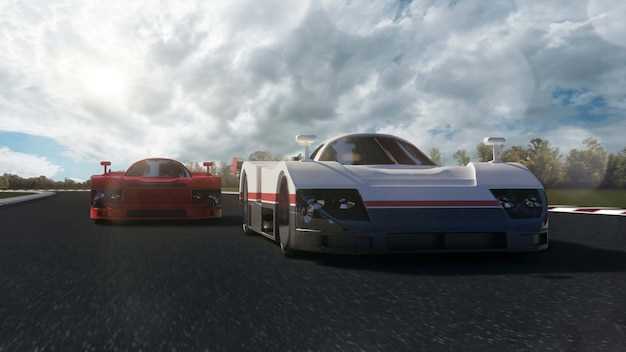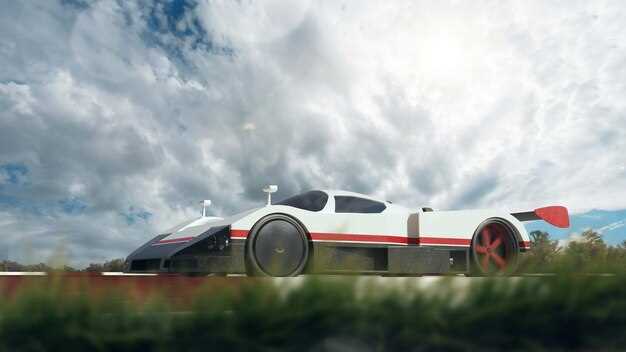
Porsche has long been synonymous with high-performance vehicles, a legacy deeply rooted in its rich racing history. Established over seventy years ago, the brand embraced competition not merely as a test of speed but as an essential platform for innovation and technological advancement. This relentless pursuit of excellence on the racetrack has profoundly influenced the design, engineering, and marketing strategies of Porsche, shaping its identity in the modern automotive landscape.
The impact of Porsche’s racing legacy is evident in its commitment to pushing boundaries. The numerous victories in prestigious races, such as the 24 Hours of Le Mans and Formula E, are a testament to the company’s philosophy of integrating competition with road car development. This symbiotic relationship has not only fortified Porsche’s standing in the market but also fostered a culture of continuous improvement and performance-oriented engineering.
As consumers increasingly seek brands that embody both performance and heritage, Porsche’s racing success provides a compelling narrative that enhances its allure. The company’s ability to translate lessons learned on the racetrack into cutting-edge technology and design for its consumer vehicles establishes a unique positioning that differentiates it from competitors. This connection to competition has cemented Porsche’s place as a leader in the luxury automotive segment, showcasing the enduring influence of its racing roots on the brand’s modern identity.
How Porsche’s Historical Racing Success Shapes Current Brand Identity

Porsche’s legacy in the realm of motorsport is deeply ingrained in its brand identity, establishing a narrative of excellence that resonates with enthusiasts and consumers alike. The brand’s storied competition history, which includes numerous victories in prestigious events like the Le Mans 24 Hours and the World Endurance Championship, has cultivated a perception of high performance and innovative engineering. This racing pedigree not only enhances the allure of Porsche vehicles but also fosters a sense of trust and reliability among potential buyers.
The impact of Porsche’s racing achievements is visible in its modern lineup, where engineering decisions are often rooted in the lessons learned from competition. Each vehicle reflects a commitment to performance, drawing inspiration from racing technologies that have percolated into everyday driving experiences. For example, advancements in aerodynamics and lightweight materials originally developed for track use have been integrated into consumer models, ensuring that Porsche remains synonymous with cutting-edge technology.
The brand has successfully translated its racing legacy into effective marketing strategies that emphasize performance heritage. Porsche emphasizes its historical connection with motorsport to attract new customers, leveraging nostalgia while appealing to a younger demographic eager for authenticity. This narrative reinforces the image of Porsche as a brand that does not merely participate in racing but excels, allowing it to stand out in a crowded automotive market.
Moreover, the competitive spirit cultivated through decades of racing success has instilled a culture of innovation and ambition within the company. This ethos drives continuous improvement, with each new model designed to exceed the expectations set by its predecessors. Consequently, the ongoing commitment to performance ensures that the brand remains at the forefront of the automotive industry while honoring its roots.
In summary, Porsche’s historical racing success is not just a chapter in its history; it is a foundational element of its brand identity. The competition mindset, coupled with the legacy of excellence, shapes the company’s approach to product development and marketing, ultimately strengthening its position as a leader in the luxury automotive sector.
The Role of Porsche’s Competition Models in Advancing Automotive Technology

Porsche’s legacy in motorsport is deeply intertwined with its commitment to innovation and technological advancement. The company’s competition models have served not only as a platform for racing success but also as testing grounds for cutting-edge automotive technology. Each model developed for competition has led to significant breakthroughs that transcend the racetrack and find their way into production vehicles.
One of the foremost examples is the Porsche 917, which dominated endurance racing in the late 1960s. Its lightweight design and aerodynamics set new standards in efficiency and performance. The lessons learned from the 917 influenced subsequent models, leading to advancements in materials and engine technology. This included the incorporation of lightweight composites and turbocharging, both of which are prevalent in modern Porsche vehicles.
The Porsche 935, another competition icon, introduced innovative systems such as intercooling and enhanced aerodynamic features. These technologies not only provided a competitive edge on the track but also shaped the development of street models. The integration of race-derived technologies into consumer cars ensured that Porsche remained at the forefront of automotive performance.
Moreover, the development of hybrid technologies in the Porsche 919 Hybrid, which achieved success in the World Endurance Championship, showcased the brand’s ability to integrate electrification into high-performance racing. This model’s groundbreaking use of energy recovery systems and hybrid powertrains has influenced Porsche’s current lineup, as seen in models like the Taycan and the hybrid variants of the Cayenne and Panamera.
Ultimately, Porsche’s competition models have not only enhanced the brand’s presence on racetracks globally but have also significantly contributed to advancing automotive technology. The legacy of these vehicles continues to inspire innovation within Porsche and the broader automotive industry, reinforcing the notion that competition is a critical driver of progress in technology and engineering.
Lessons from Porsche’s Racing Strategies Applied to Today’s Market Challenges
Porsche’s legacy in motorsport has significantly shaped its brand identity and operational strategies. The principles derived from their racing approaches can be effectively utilized to tackle contemporary market challenges. Here are several key lessons from Porsche’s racing strategies:
- Innovation and Technology: Porsche continually invests in cutting-edge technology to enhance performance. This commitment to innovation not only drives success on the track but also influences production vehicles. Modern businesses should adopt a similar mindset, integrating new technologies to stay competitive.
- Adaptability: The racing world is unpredictable, requiring teams to adapt quickly to changing conditions. Porsche’s ability to pivot in response to unforeseen circumstances highlights the importance of flexibility in business. Companies today must remain agile, ready to adjust strategies in response to market shifts.
- Data-Driven Decisions: Racing teams utilize extensive data analysis to refine their performance. Porsche exemplifies the effective use of telemetry to improve vehicle handling and speed. Businesses should leverage data analytics to make informed decisions that enhance efficiency and customer satisfaction.
- Team Collaboration: Success in racing stems from seamless teamwork, where every member plays a vital role. Porsche’s integrated approach underscores the importance of collaboration across departments. Companies should foster a culture of teamwork to drive innovation and enhance problem-solving capabilities.
- Brand Loyalty: Porsche has cultivated a dedicated fan base through consistent performance and engagement in motorsports. Brands today must focus on building relationships with customers, encouraging loyalty through authentic interactions and shared values.
- Continuous Improvement: The philosophy of never settling for mediocrity is central to Porsche’s racing ethos. Continuous refinement of processes and products is essential for sustained success. Organizations should embrace a culture of ongoing improvement to meet and exceed industry standards.
In summary, the lessons derived from Porsche’s racing strategies provide valuable insights for businesses facing modern market challenges. By embracing innovation, adaptability, data-driven approaches, collaboration, brand loyalty, and continuous improvement, organizations can effectively navigate the complexities of today’s competitive landscape.
 Skip to content
Skip to content




